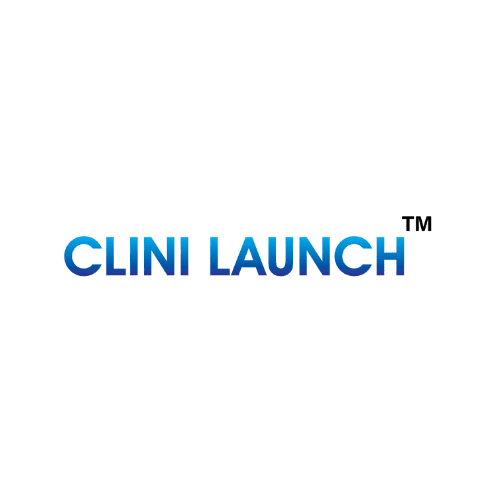In healthcare, data analytics in revenue cycle optimization plays a crucial role, especially in financial management. It helps organizations identify inefficiencies, reduce errors, and improve their financial performance. With the transformation in the industry, healthcare organizations use electronic health records (EHRs) universally. Now, they focus on rising patient financial responsibilities, approaching collections, and patient communications. In the context of revenue cycle management, its impact is significant for healthcare organizations with the increase in 15-25% spending based on the growing complexity of reimbursement. Due to the increase in complexity, healthcare organization adopt data analytics as it offers actionable and valuable insights to streamline billing and collection based on claims.
Healthcare Revenue Cycle Management

Creative Designed by Md Aayan Ansari (Graphic Designer at CliniLaunch)
Data analytics is crucial in improving efficiency and optimizing the revenue cycle within healthcare organizations. By analyzing extensive datasets, organizations can identify and address recurring problems, such as claim denials and delays in payment.
The increasing adoption of AI-driven solutions and predictive analytics is further enhancing these efforts. These technologies enable healthcare organizations to reduce claim denials, improve collections, and accelerate payment cycles. For example, data-driven organizations often experience a 10-15% increase in clean claim rates, resulting in fewer denials and faster reimbursement (Becker’s Hospital Review).
The presence of clean claims directly impacts cash flow. By minimizing the need for rework and streamlining the payment process, organizations can improve their financial stability and ensure timely access to necessary funds.
Key Metrics to Track with Data Analytics in Revenue Cycle Optimization

Creative Designed by Md Aayan Ansari (Graphic Designer at CliniLaunch)
Healthcare organizations can significantly optimize their Revenue Cycle Management (RCM) processes by closely monitoring key performance indicators. Data analytics tools play a crucial role in this by enabling real-time tracking of these metrics. This allows RCM teams to promptly identify and address any issues, make data-driven decisions, and ultimately improve the overall efficiency and effectiveness of their revenue cycle.
Denial Rates
Claim denials represent a substantial drain on healthcare revenue. Industry reports reveal that a staggering 90% of these denials could be avoided through meticulous documentation and prompt claim submissions (Becker’s Hospital Review). By leveraging analytics solutions to analyze historical claim data, healthcare providers can identify recurring patterns in denied claims. This valuable insight empowers providers to proactively implement strategies that mitigate the risk of denials and ultimately safeguard revenue streams.
Days in Accounts Receivable (A/R)
Days in Accounts Receivable (A/R) reflect the average time it takes to collect payments from customers. A high A/R figure signals delays in collections, negatively impacting cash flow. By employing analytics, organizations can identify bottlenecks in their billing and claims processes, leading to faster collections. Companies that utilize predictive analytics have reported a significant 20-30% reduction in A/R days, enabling them to accelerate their revenue cycles.
Revenue Leakage
Revenue leakage, stemming from inefficiencies like inaccurate billing, undercoding, or missed charges, can severely impact healthcare organizations. Studies conducted by Becker’s Hospital Review have demonstrated that the strategic implementation of analytics can effectively mitigate this issue. By leveraging data-driven insights, healthcare providers can potentially recapture 1-5% of lost revenue, significantly improving their financial bottom line by capturing revenue that might have otherwise slipped through the cracks.
The Role of Artificial Intelligence and Automation in Medical Billing

Creative Designed by Md Aayan Ansari (Graphic Designer at CliniLaunch)
Automation is revolutionizing healthcare revenue cycle management (RCM) by streamlining repetitive tasks. AI-powered solutions automate processes like claims processing and eligibility checks, significantly reducing errors and freeing up valuable staff time. This allows RCM teams to focus on more complex and strategic initiatives.
TechTarget emphasizes the critical role of AI in addressing common RCM challenges, such as coding errors and denials. Early adopters of AI-driven analytics have experienced substantial improvements in revenue capture and billing accuracy, demonstrating the significant benefits of AI-powered solutions.
Beyond automation, predictive analytics is empowering healthcare providers to make more informed financial decisions. With the proper analysis of historical data, predictive models can forecast future revenue trends, enabling organizations to effectively plan for cash flow fluctuations and optimize resource allocation. Furthermore, these tools can proactively identify potential denials, allowing RCM teams to implement preventive measures and minimize revenue disruptions.
Conclusion
The healthcare industry is facing mounting financial pressures. In this challenging scenario, the adoption of data analytics in revenue cycle optimization is no longer a luxury, but a necessity. Data analytics provides the critical insights that are required to address key challenges like reduction of claim denials, improvement in clean claim rates, and collection acceleration.
By harnessing the power of data, healthcare providers can automate routine tasks while utilizing predictive models to anticipate potential issues. This data-driven approach empowers organizations to make informed decisions that optimize their revenue cycle operations.
Learn to translate medical information into codes and medical billing for insurance companies. CliniLaunch medical coding training institute in India provides the best medical coding classes online. If you are a working professional in the field of healthcare, CliniLaunch is 100% committed to providing healthcare IT and pharma training standards and provides the best infrastructure with well-equipped education and training facilities for individuals.





